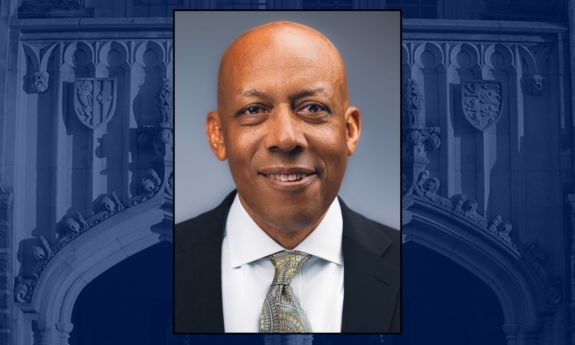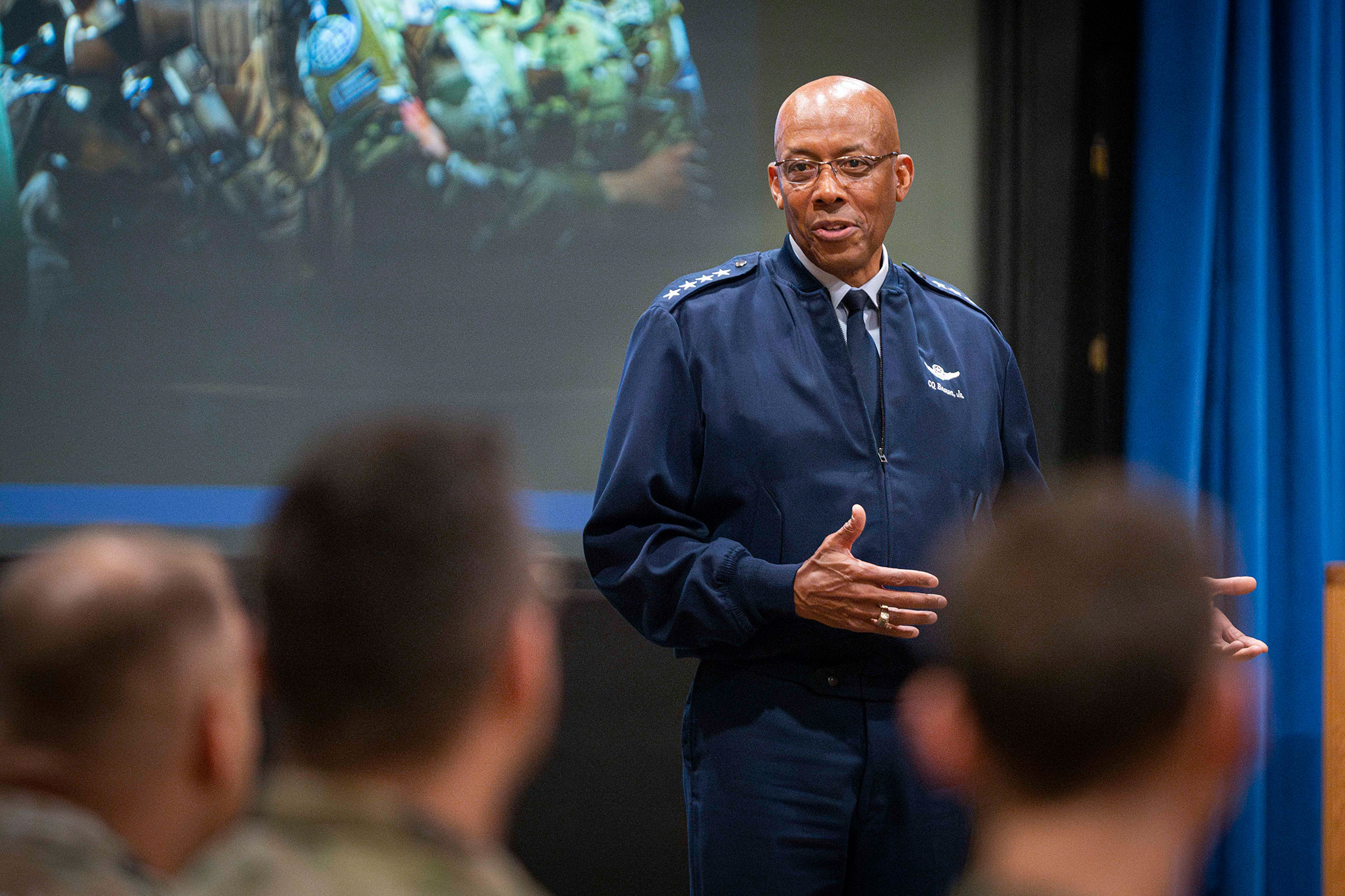Retired Gen. Charles Q. Brown Jr. to be Executive-in-Residence at Duke
Former Chairman of the Joint Chiefs of Staff will engage with students and faculty

In the Pratt School of Engineering, he will partner with faculty to develop and teach modules in the Character Forward program, which integrates ethics and character development into technical education, and engage with the Master of Engineering Management Program. He will also serve as a guest lecturer in other classes and engage with students, faculty and research initiatives.
“We are honored to welcome Gen. Brown to Duke,” Gallimore said. “His expertise will be valuable and deeply relevant for students and faculty in Sanford, Pratt and the Program in American Grand Strategy, reflecting Duke’s commitment to interdisciplinary learning and public engagement. I look forward to welcoming him to our academic community, which will be eager to learn from his decades of distinguished leadership and service at the highest levels of our nation.”
“I appreciate the opportunity to join the Duke community as I complete my military career,” Brown said. “Serving as an executive-in-residence allows me to continue contributing to our nation’s future, just in a new capacity.

“The chance to draw on my experience in national security, technology and leadership to help prepare the next generation of public servants and problem-solvers is both deeply rewarding and a meaningful continuation of my service. Throughout my career, I’ve taken seriously the responsibility to inspire and mentor future leaders. Duke will enable me to continue honoring that responsibility through engagement with students, faculty and the broader university community.”
Brown was nominated in 2020 by President Trump to be the 22nd chief of staff of the U.S. Air Force. He was confirmed by the U.S. Senate in a 98-0 vote. In 2023, Brown was nominated by President Biden to be chairman of the Joint Chiefs of Staff and was confirmed by the Senate in a vote of 83 to 11.
Brown has commanded the Pacific Air Forces, U.S. Air Forces Central Command, 31st Fighter Wing, 8th Fighter Wing, U.S. Air Force Weapons School, and 78th Fighter Squadron. He has also served as deputy commander of the U.S. Central Command. A fighter pilot, Brown has logged over 3,100 flight hours—primarily in the F-16, including 130 combat hours—and flew 20 additional fixed- and rotary-wing aircraft.
His leadership positions in the Air Force also include serving as aide-de-camp to the chief of staff of the Air Force, director of the Secretary of the Air Force Chief of Staff Executive Action Group, and F-16 Fighting Falcon Instructor at the U.S. Air Force Weapons School.
Brown was promoted to four-star general in 2018 when he was nominated as commander of Pacific Air Forces. As PACAF commander, Brown oversaw all major U.S. Air Force operations within the Indo-Pacific region.
“Gen. Brown’s record of leadership at the highest levels of service to our country and his deep engagement with innovation and national security strategy bring extraordinary value to our community,” said Manoj Mohanan, interim dean of the Sanford School of Public Policy. “His experience and global expertise will be an enormous asset to Sanford as we continue to grow our programs in national security, and I look forward to the dialogue and collaboration his residency will inspire among students and faculty alike.”
Brown earned his bachelor’s degree in civil engineering from Texas Tech University, where he earned his commission in 1984 as a distinguished graduate of its Air Force ROTC program. He also holds a master’s degree in aeronautical science from Embry-Riddle Aeronautical University. He is a graduate of the U.S. Air Force Fighter Weapons School, a distinguished graduate from Air Command and Staff College, a graduate of the Air War College, and served as a National Defense Fellow at the Institute for Defense Analyses.
“Gen. Brown’s wealth of experience as an engineer who has devoted his professional life to national service will inspire our students,” said Jerome Lynch, Vinik Dean of the Pratt School of Engineering. “But it will be his experiences as a high-ranking officer in the Air Force, including chairman of the joint chiefs of staff, that will provide our students with a unique education in the power of technology in advancing the common good, including our national security.”
Brown has been honored with many of the military’s major awards and decorations, including the Defense Distinguished Service Medal with three oak leaf clusters, the Distinguished Service Medal, the Defense Superior Service Medal, the Legion of Merit with three oak leaf clusters, and the Bronze Star Medal.
Known for his emphasis on innovation outlined in his strategic approach, “Accelerate Change or Lose,” Brown underscored that staff at all levels “must be multi-capable and adaptable team builders, as well as innovative and courageous problem-solvers, and demonstrate value in the diversity of thought, ingenuity and initiative.”
In his 2021 “Innovation Letter to Airmen,” Brown wrote, “Innovation is more than a buzzword—it goes beyond just creative thinking and lofty expectations. … To succeed, we must properly identify problems, empower decentralized solutions by individuals and teams, and infuse an ethos of innovation at all levels. Innovation depends on both creative individuals and supportive organizations to turn concepts into reality. … An idea that is never presented is worse than an idea that does not work.”
“Gen. Brown is widely respected as a senior military leader with deep experience at all levels of command up to the highest post in the military,” said Peter Feaver, professor of political science and public policy and director of the Duke Program in American Grand Strategy.
“He has long focused on how to lead innovation within the military to keep pace with rapidly changing technology. This gives him a distinctive perspective that speaks to many of the research and teaching priorities Duke leaders have identified for our community. Faculty, graduate and undergraduate students are fortunate to be able to engage with and learn from him.”